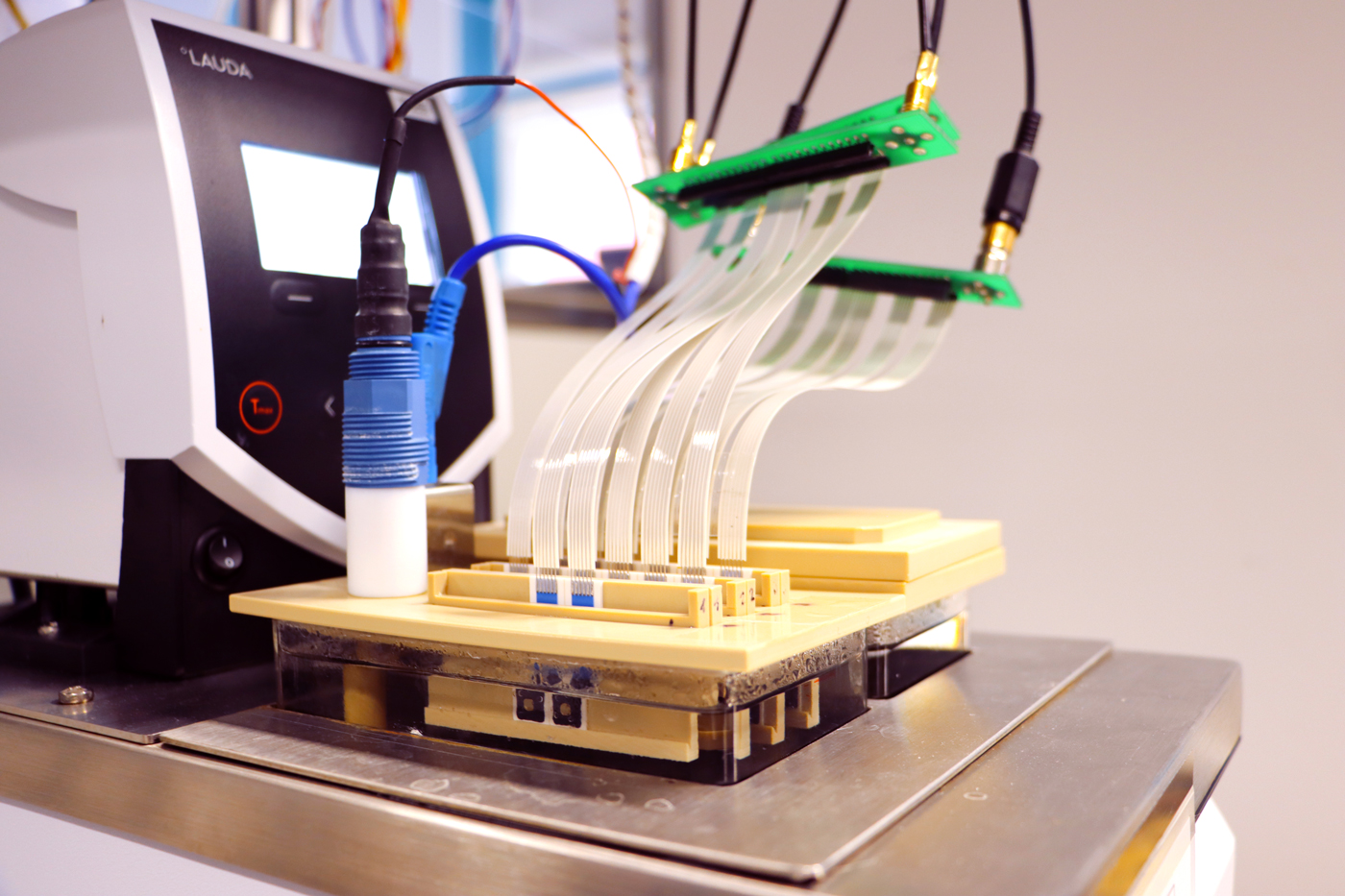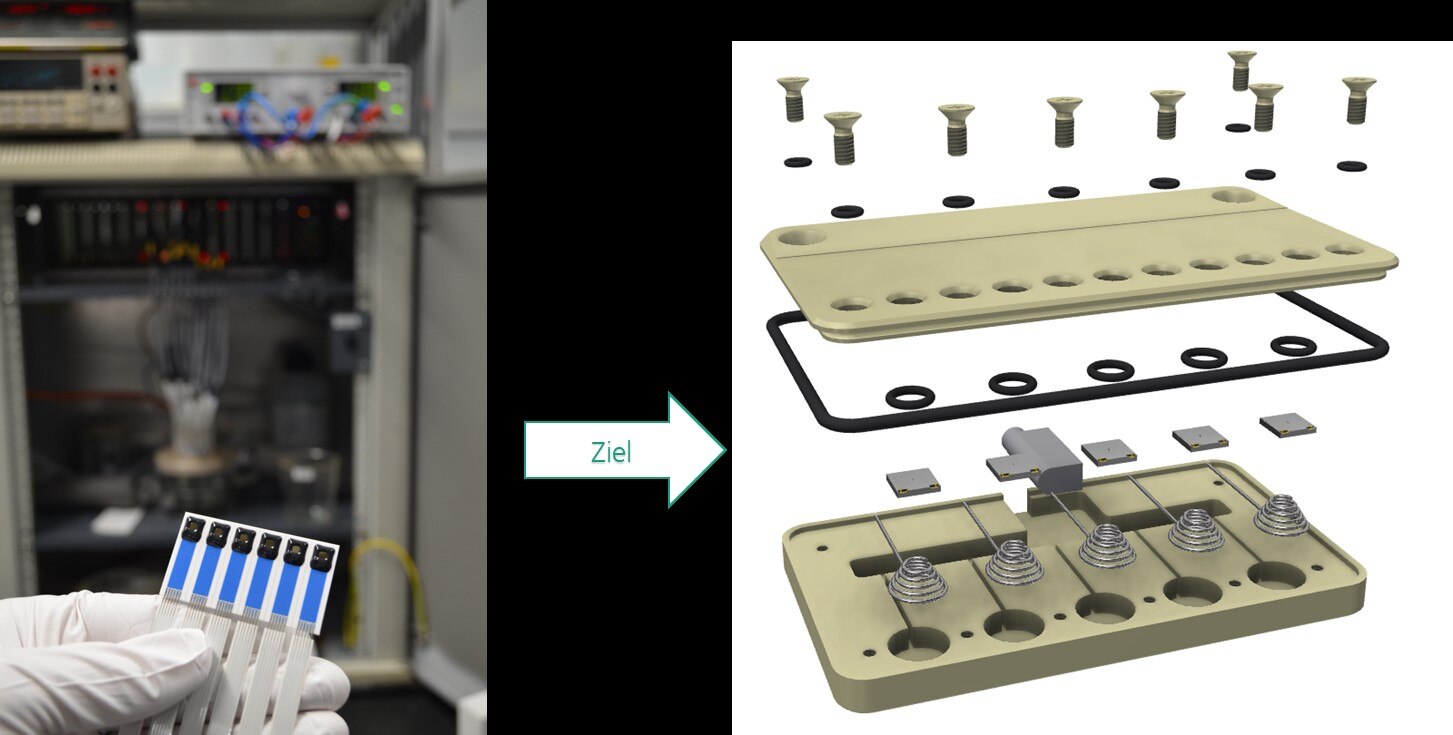Resource- and energy-saving ISFET-based sensor technology (REISen)
Project duration: 03/2023 - 12/2023
The aim of the project Resource- and Energy-saving ISFET-based Sensor Technology (REISen) is to research material-related methods for chemical sensors based on ISFET (ion sensitive field effect transistors). These sensors are used to measure the pH value in, for example, the food sector.
Focus:
- Research into processes for replacing tantalum as a sensor material for ISFETs, using pH sensors as an example. Tantalum as a critical and expensive material is of great importance for high performance pH measurement technology. Alternative materials often do not show the performance, but are sufficient for many applications and are also less expensive. In addition, there are energy savings in processing.
- Research into resource-efficient characterization and integration of ISFETs. State-of-the-art bonding processes, circuit boards and conductive tracks made of palladium / platinum and silver alloys are used. The aim is to avoid these processes and materials.
- Development of resource-saving sensor functionalization methods: The state of the art is flat coatings with subsequent structuring. In this process, more than 99% of the materials used are lost, since the sensorically active areas are only a few square micrometers in size. The aim is therefore to save material by direct structuring at wafer level using microfine dispensers. This not only saves reactive and thus often toxic materials, but also reduces the health burden on the workers and relieves the environment.
The REISen project addresses several UN sustainability goals: e.g. health and well-being, clean water, climate protection.
 Fraunhofer Institute for Photonic Microsystems
Fraunhofer Institute for Photonic Microsystems
